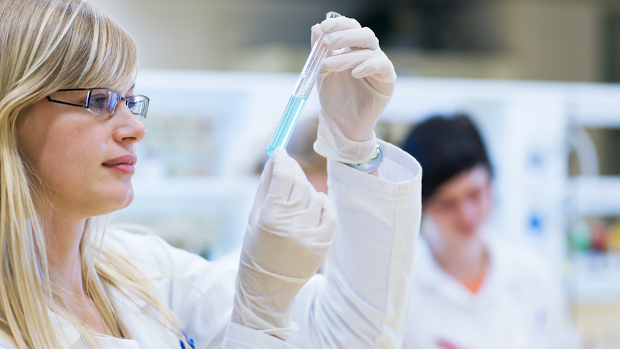
Irish scientists hunt for genetic explanation to Covid-19 resistance
Irish scientists are among a global group hunting for a genetic explanation as to why some people seem resistant to Covid-19 while others experience life-threatening symptoms.
In a landmark paper published in leading journal Nature Immunology, the consortium sets out a strategy for answering one of the pandemic’s greatest questions: ‘Why do some people not get Covid-19?’
The Covid-19 Human Genome Effort is being led by Jean Laurent Casanova of the Rockefeller Institute in New York and Helen Su of the National Institutes of Health in the US. It involves teams from over 50 countries, including one from Trinity College Dublin.
Throughout history, infectious diseases have imposed a strong evolutionary pressure on humans. Viruses, particularly, seem to have been dominant drivers of genetic change as adaptations have arisen that protect individuals from infection or from serious illness during infection.
Scientists over the years, have discovered genetic factors that partly explain why infections such as malaria, HIV, and hepatitis C affect some people more than others. The consortium has already discovered how variation in some immune genes contributes to severe Covid-19 infection.
Now the COVIDHGE consortium wants to find the genes responsible for why some people are resistant to Covid-19. The effort to uncover natural resistance to Covid-19 is being led by András Spaan of the Rockefeller University in New York.
The collaborating COVIDHGE scientists will, over the next 12 months, seek people who seem to be naturally resistant to COVID-19 (having been exposed, in close quarters, and for significant time to an infected person) and compare their genetic – and other biological – profiles with those of non-resistant people who become infected.
In doing so, they will hunt – in a targeted manner – for genetic answers that could explain why some people are resistant and others not, and by extension, make a global impact in fighting the virus.
The Irish group, led by Cliona O’Farrelly, professor of comparative immunology at Trinity College Dublin, has been a member of COVIDHGE since June 2020 and is now supported by Science Foundation Ireland to contribute to the global effort, via the Directs: Detecting Innate pRotECTion against SARS-CoV2 project.
Prof O’Farrelly, whose team is based in the Trinity Biomedical Sciences Institute and who collaborates with clinicians and scientists in St James’s Hospital, said: “There is a growing awareness that many people seem to have innate immune-mediated resistance to viral infections. My team and I have been highlighting this for a number of years since our discovery that around one-third of Rhesus-negative Irish women exposed to hepatitis C-contaminated anti-D in 1977-79 did not ever show symptoms of the virus.
“Because of that work, and growing information regarding the wildly variable responses that people have to Covid-19 exposure, we are convinced that a proportion of the population is resistant to the virus.”
“We have recruited 30 ‘resistors’ from St James’ Hospital – people who remained Covid-negative while living with someone who was infected – and have DNA and serum samples ready to be analysed,” added Jamie Sugrue, PhD Candidate in Prof O’Farrelly’s team. “Over the next 12 months we will collect more biological material from the resistors and their virus susceptible living partners to compare their innate immune responses and identify biological hallmarks of resistance to Covid-19.
“We hope by combining the genetic, biological and serological data we will identify a biomarker signature of resistance to Covid-19. This signature could then be used to find out – with great accuracy – how many people are resistant to Covid-19 and may help inform novel antiviral therapies.”
TechCentral Reporters






Subscribers 0
Fans 0
Followers 0
Followers